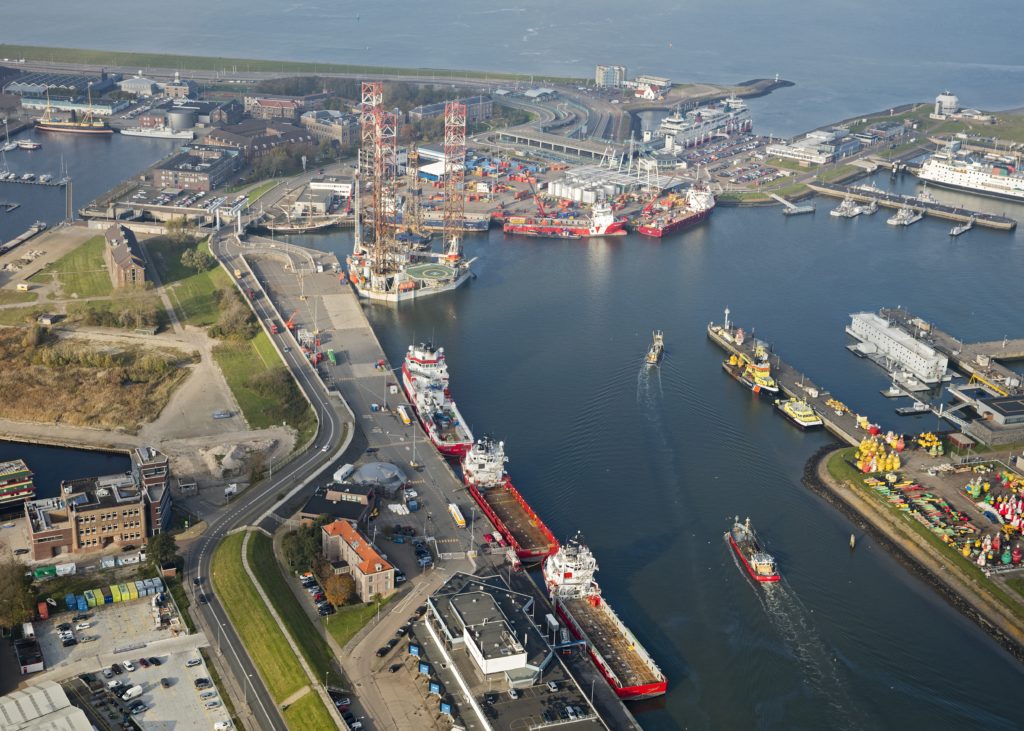With the growth of the hydrogen economy comes responsibility: how do we ensure safety when working with hydrogen, especially in complex environments such as ports and offshore installations? This question will be central to Offshore Experience 2025, on 9 September in Den Helder. This annual event for the offshore sector will feature a workshop on the safe application of hydrogen on land, at sea and in ports.
By Joshua Dauda and Danah Kolsteeg*
Hydrogen is clean, flexible and has enormous potential for realizing a CO₂-neutral future. But it also requires a new safety thinking. The workshop, organized by the project North Sea Hydrogen Valley Ports (NSH2V Ports) with New Energy Coalition, focuses specifically on safety in port environments. Ports are the future hubs of the hydrogen economy — for storage, bunkering and offshore transport — and therefore require tailor-made solutions in the field of risk management and infrastructure.
Part of the programme is a live panel discussion with security experts, port strategists, policy makers and young professionals, where current risks, innovative detection solutions, cross-border regulations and governance dilemmas will be examined.

The discussion about hydrogen safety is still too often clouded by historical incidents, such as the Hindenburg disaster in the 1930s, or recent explosions such as in South Korea. But the reality is more nuanced.
Hydrogen is non-toxic and burns cleanly. However, it also spreads more quickly in the event of a leak and has a nearly invisible flame, requiring new approaches to detection and fire safety. Hydrogen can also weaken certain metals over time, requiring infrastructure (pipelines or valves) to be modified.
Hydrogen is not necessarily more dangerous than other fuels — it is simply different. With a well-designed hydrogen system, combined with adequate training, procedures and awareness, it is as safe as any other energy infrastructure.
Several projects in the Netherlands show how safety can be an integral part of hydrogen applications. In Alkmaar provides the NXT gas station hydrogen heavy commercial vehicles and nearby Investa serves as a training location for hydrogen safety, emergency response and technical testing. In Groningen, wordWorkt is being implemented within the HEAVENN project (Hydrogen Energy Applications in Valley Environments for Northern Netherlands) worked on an extensive hydrogen value chain — from residential heating to public transport — with safety as a central design requirement.
These projects demonstrate that it is possible: scalable, safe integration of hydrogen, provided that the parties involved work together and invest in knowledge and coordination.
A particularly ambitious initiative is the North Sea Hydrogen Valley Ports (NSH2V) project, which is jointly led by New Energy Coalition, Development Company North Holland North (ONHN) and a consortium of leading European ports. NSH2V, which is funded by the Interreg North Sea programme, aims to develop and accelerate safe and scalable hydrogen chains via the North Sea port infrastructure.

Ports such as Den Helder, Bremen, Esbjerg and Brest are at the forefront of the transition to a maritime hydrogen ecosystem and therefore play a central role in this strategy. Safety is a cornerstone of the NSH2V approach. In the project, port authorities, safety experts and regional planners work together to develop joint protocols for bunkering, storing, transporting and offshore processing of hydrogen. Innovations such as remote sensor networks, AI-based risk modelling and joint emergency training exercises are tested to strengthen safety readiness across borders.
In addition to technology development, NSH2V ensures international knowledge exchange, coordination of safety agreements and application of best practices in European ports. In close cooperation with regional development agencies such as ONHN, the project ensures that hydrogen integration is embedded in local spatial planning, workforce training and port redevelopment strategies.
NSH2V thus sets a new standard for the safe application of hydrogen in a complex and international context.
The Hydrogen and Safety session during the Offshore Experience is scheduled for Tuesday, September 9, from 2:15 PM to 3:00 PM and will be moderated by Ellen van der Veer. Joshua Dauda will provide an update from the NSH2V Ports project during this workshop. Other speakers include Sasa Marinic (Total Energies), Martin Koelman (Seekable), and Willem Hummel (Vicoma).
Want to know more or participate?
Tickets for this event cost €79.95 and include access to all activities on the day. Free tickets are available for press and government officials.
All information can be found here: Offshore experience